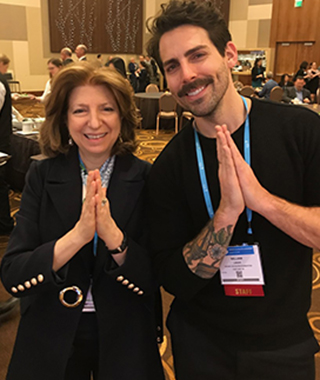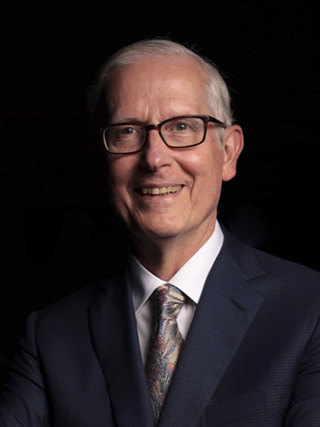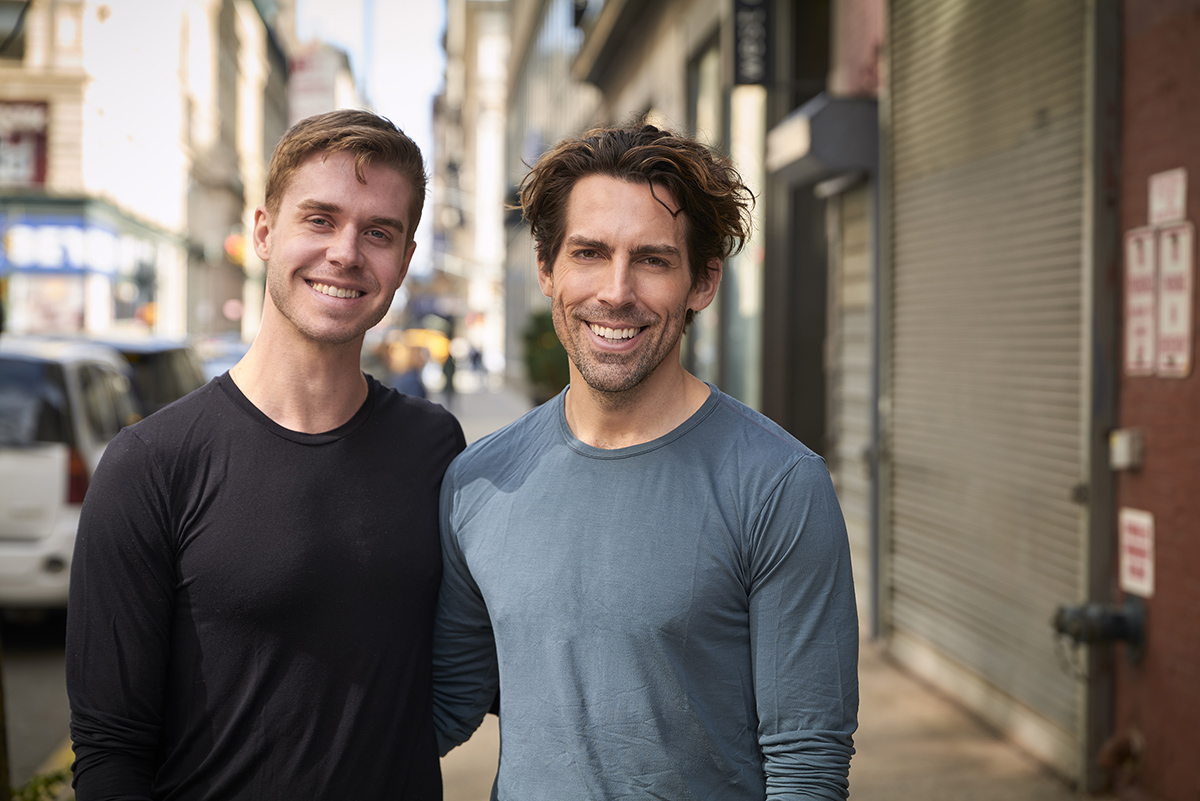How Early Detection Helped Will Lanier Survive Colorectal Cancer at 28
Will Lanier lived with ulcerative colitis for nearly a decade before he was diagnosed with colorectal cancer in his 20s. Now free of both diseases, the 37-year-old shares how fitness, community, and his care team helped him through treatment and recovery.
By most people’s standards, Will Lanier is an overachiever. From graduating college magna cum laude to managing successful gyms to being an LGBTQIA+ advocate to finishing his last year of law school, there are few challenges he hasn’t met head on.
His ambition is rooted not in ego but in a deep desire to make a difference, in part because he spent most of his young life overcoming obstacles. Growing up gay in a small Texas town, “I had the worst things happen to me. But even as a little kid, I was just like, ‘I don’t care. You don’t like me? That’s fine,’” Will recalls. “I was a straight-A student, head cheerleader, a top tennis player, a cross-country star. Anything I put my mind to, I just had to be the best, because at that time society was teaching me that gay people were not equal. I was good at everything because I felt like I needed to be.”
That determination would serve Will later when, at age 28, he was diagnosed with colon cancer after living for nearly a decade with ulcerative colitis, an inflammatory bowel disease (IBD). While waiting for follow-up tests to confirm the cancer diagnosis, “I spent the weekend wondering if I was going to die,” Will says.
Still, life didn’t stop — he went on a trip with friends to Cape Cod and prepared himself for the fight, telling himself: “I’ve done hard things, and this is just another hard thing.”
A Cancer Diagnosis at 28
In 2005, at age 19, Will was diagnosed with ulcerative colitis, a type of IBD that causes inflammation and ulcers inside the large intestine, leading to abdominal and rectal pain, rectal bleeding, diarrhea, and difficulty having bowel movements, among other symptoms. Sometimes he would go into remission, and medications helped, but he was in and out of doctors’ offices constantly.
During one particularly severe flare-up in 2014, Will decided it was time to find a new doctor. He was living in New York City by then and wasn’t happy with his care from another provider. His research led him to Dr. Ellen Scherl, a gastroenterologist and founder of the Jill Roberts Center for Inflammatory Bowel Disease at NewYork-Presbyterian/Weill Cornell Medical Center and Weill Cornell Medicine. Will recalls having a first visit of nearly two hours, and Dr. Scherl ordered a colonoscopy to determine whether inflammation was the cause of his most recent symptoms.

Dr. Ellen Scherl and Will share a moment at an IBD awareness event.
During the colonoscopy, Dr. Scherl saw the inflammation, but she also caught something atypical. It didn’t look like a polyp or pre-cancerous lesion, but she had it biopsied anyway. “What I saw looked very, very minimal, so I didn’t think much of it — and it came back colon cancer. I did not actually believe it at first,” says Dr. Scherl, who is also the Jill Roberts Professor of Inflammatory Bowel Disease at Weill Cornell Medicine. She had the lab re-run the DNA on the biopsy just to ensure it was Will’s sample, and the second test confirmed the result.
People with ulcerative colitis are at higher risk for colorectal cancer than the general population, and the risk starts to increase when they’ve had the disease for 10 years or longer. Will was right before the cusp of that window and was otherwise healthy and fit — at the time he was managing three CrossFit gyms — so the results were still surprising.
The good news: It was caught so early that his prognosis was positive. “This is why we do colonoscopies,” Dr. Scherl says. “It’s all about colon cancer prevention, and by picking it up early, we prevented a more aggressive extension of this cancer.”
A Life-Changing Surgery
Although he was shocked by the diagnosis, Dr. Scherl’s optimism gave Will hope. “Not to fear — we will get this fixed,” he recalls her telling him.
Dr. Scherl referred him to gastrointestinal surgeon Dr. Fabrizio Michelassi, surgeon-in-chief at NewYork-Presbyterian/Weill Cornell Medical Center and chair of surgery at Weill Cornell Medicine. After exploring treatment options, they determined the best route would be a J-pouch procedure, which would require removing his colon and reconfiguring his small intestine to help him pass waste normally. Not only would this remove the cancer, removing the colon also meant he would no longer have ulcerative colitis.

Dr. Fabrizio Michelassi
“In his particular case, removing the colon was the only option left because he was on high doses of steroids to keep his ulcerative colitis in check, and you can’t be on such high doses for a long time without having complications from the steroids treatment,” says Dr. Michelassi, who is also the Lewis Atterbury Stimson Professor of Surgery at Weill Cornell Medicine. “In these cases, the surgery is necessary whether there is cancer or not.”
Although the J-pouch procedure can happen in anywhere from one to three surgeries, Will’s treatment required three to give him time to be weaned off his steroid medications.
Will’s surgeries included:
- A colectomy (removal of the entire colon) and temporary ileostomy, also known as a stoma, in which the last part of the small intestine (the ileum) is brought up to the skin of the abdominal wall and opened into an appliance. Waste passes through the stoma and into an ostomy bag applied to the outside of the body.
- The ileal pouch-anal anastomosis, or the surgery in which the J-pouch is created. In this stage, the rectum is removed and the last foot of the small intestine is used to create a J-shaped pouch and attached to the anus. While the J-pouch heals, patients continue to use an ostomy bag.
- The ileostomy reversal, in which the portion of the small intestine that was re-routed to the surface of the abdomen is reconnected, allowing for normal bowel elimination through the anus.
Each stage can require several months of healing in between, but Will insisted on scheduling his surgeries in the minimum amount of recovery time allowed, eight weeks apart, so he could be done in six months.
Dr. Michelassi says Will’s physical and mental determination is what enabled him to do this. “It makes a big difference to have a patient who is motivated,” he says. “In between surgical operations, patients need to be active and focused on regaining strength and muscle mass, and come off steroids. He’s not just resilient, he has grit and motivation, and he just wanted to get better and move on.”
Will recalls going for a run and doing planks two weeks after his first surgery with his ostomy bag in tow. “Being fit was helpful because it helped with my healing, but I was also making sure I stayed sane,” he says. “What brought me joy and what made me feel alive was going out and sweating and being active.”
His goal was to ring in the New Year cancer-free. “I was diagnosed in July 2014, and I didn’t want to go into 2015 dealing with this,” he says. “I had my last surgery on December 24th, and that was it.”
Recovery Through Community
That’s not to say there weren’t times when he felt himself succumbing to fear or anger. Then his friends and family would step in. “My dad would call me and say, ‘Did you shave today? Get up, go shave. Go outside,’” Will recalls. His then-boyfriend forced him to walk laps in the park, even in the rain, when he felt physically at his worst after the second surgery. And all his fitness friends and CrossFit colleagues constantly checked in with him and cheered him on.
“I made sure I surrounded myself with people who were supportive and would not allow me to wallow in my rage,” Will says. He includes his medical care team as part of that. “You have a care team, it’s not a care person. It’s not a care individual. There’s a team of humans that helps you, and I didn’t ever feel that anywhere else.”
During this time, he started reading up on colorectal cancer and realized that cases were rising among younger people, but awareness wasn’t. Working with a friend who worked in cause marketing, they started a #blankcancer social campaign. Will posed with his ostomy bag holding a “___ Cancer” sign to encourage people to post themselves filling in the blank with their own words. They also held a local event that combined fitness with cancer awareness. Dr. Scherl attended a yoga session that was part of the campaign.

“Every time I make a decision in life, it’s based around how many people I can help,” says Will, right, pictured here with fiance Jack Amory.
“He mobilized a whole community of positive-thinking people, and I wanted to support that,” says Dr. Scherl, whose own research with colleagues has found that breathing and mind-body exercises can help improve the psychological and physical effects of IBD. “Part of my commitment as a doctor is to psychosocial support. It’s important for us to be part of the healing process.”
It’s been about nine years that Will has been cancer- and ulcerative colitis-free. During that time, he’s moved around the country, taken on new jobs, founded a nonprofit to create inclusive spaces in fitness for the LGBTQIA+ community, entered Fordham University School of Law to pursue a second career as an attorney, and gotten engaged.
And he continues his advocacy work around colorectal cancer and ulcerative colitis. He ran a half-marathon as part of a team challenge for the Crohn’s and Colitis Foundation just six months after his last surgery, and whenever possible he shares what it’s like to have lived with the disease from the perspective of a gay man. “This disease can affect your ability to have sex in certain ways, and that’s hard for a lot of guys to deal with,” Will says. “It’s another layer of stress and anxiety and sadness. I’ve just tried to be as open about my experience as I can and share what I know.”
As for his future, Will is open to any possibility — as long as he knows he’s making an impact. “Every time I make a decision in life, whether that’s a new position, a new career, or a new anything, it’s based around how many people I can help,” he says. “And I say this not as a cliché; it’s literally how I feel. Because that changes the lives of not only a person but also a community. So how can I level up and do more?”
Ellen Scherl, M.D., is an attending gastroenterologist at NewYork-Presbyterian/Weill Cornell Medical Center and the Jill Roberts Professor of Inflammatory Bowel Disease and a professor of clinical medicine at Weill Cornell Medicine. A world-renowned IBD expert, in 2006 she founded the Jill Roberts Center for Inflammatory Bowel Disease, one of the nation’s leading multidisciplinary centers for the diagnosis, comprehensive care, and innovative treatment of patients with Crohn’s disease and ulcerative colitis. She is currently the center’s research director and serves as the principal investigator on many IBD clinical trials.
Fabrizio Michelassi, M.D., F.A.C.S., is surgeon-in-chief at NewYork-Presbyterian/Weill Cornell Medical Center and chair of the Department of Surgery and the Lewis Atterbury Stimson Professor of Surgery at Weill Cornell Medicine. He is a world-renowned gastrointestinal surgeon with expertise in the surgical treatment of gastrointestinal and pancreatic cancers as well as IBD, and he developed a novel bowel-sparing procedure known as the Michelassi strictureplasty. He has written more than 330 papers, book chapters, and abstracts, and is on the board of regents for the American College of Surgeons.
Additional Resources
Learn more about IBD treatment and research at the Jill Roberts Center for Inflammatory Bowel Disease.
- Learn more about how pouch surgeries work to help treat ulcerative colitis.

